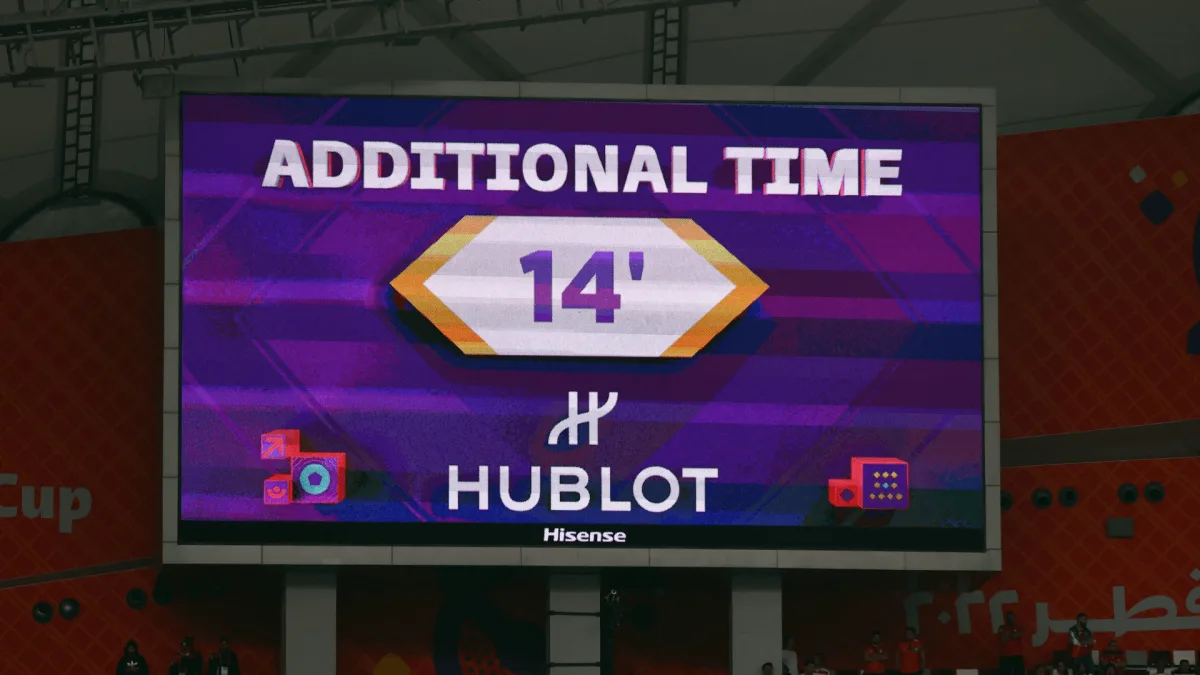-
News
- 15 Apr 2025
Explained: Why there is so much injury time at World Cup 2022

The 2022 World Cup is now in full swing.
Ecuador opened up the tournament by beating hosts Qatar 2-0 on Sunday, before England thrashed Iran 6-2 in the early game on Monday.
That was followed by the Netherlands defeating Senegal 2-0 and Wales and the United States drawing 1-1 in the evening.
The biggest talking point of the tournament so far – aside from the politics and human rights discussions – has been over the sheer amount of added-on time in matches.
World Cup 2022: Teams, fixtures, results, favourites
World Cup all-time top scorers
Ronaldo vs Messi at the World Cup: How their stats, goals, assists and performances compare
In all three games on Monday, there was an historic amount of injury time in games.
In England versus Iran, following head injuries to goalkeeper Alireza Beiranvand and defender Harry Maguire, and a long VAR check on Iran’s second penalty, there was a staggering 26 minutes of injury time in total from the end of both halves.
Holland-Senegal, meanwhile, had eight minutes of stoppage at the end of the game, with USA-Wales having nine minutes of injury time before the final whistle.
The reason why there has been so much added time is not coincidental.
There is a clear policy by FIFA to add extra time to account for stoppages in play and also to crack down on time-wasting.
The three World Cup games today have had over 45 minutes of injury time. An entire half of extra football!
— Ben Jacobs (@JacobsBen) November 21, 2022
Why has there been so much added time in Qatar?
Pierluigi Collina, chairman of FIFA's referees committee, has explained why so much added-on time is being allowed in Qatar.
“We told everybody to not be surprised if they see the fourth official raising the electronic board with a big number on it, six, seven or eight minutes. If you want more active time, we need to be ready to see this kind of additional time given,” Collina told ESPN.
"Think of a match with three goals scored. A celebration normally takes one, one and a half minutes, so with three goals scored, you lose five or six minutes. What we want to do is accurately calculate the added time at the end of each half.
“It can be the fourth official to do that, we were successful in Russia [2018] and we expect the same in Qatar. I am not talking about VAR intervention, this is something which is different and calculated by the Video Assistant Referee in a very precise way."
So we can expect many long matches in Qatar. Games lasting over 100 minutes will likely be the norm, while once we hit the knockout stages there could quite conceivably be games lasting over 150 minutes (two and a half hours) if they go to extra time!



















